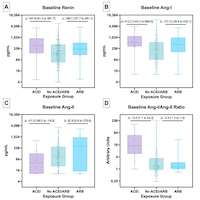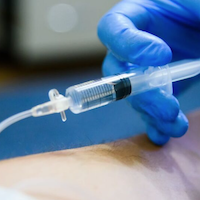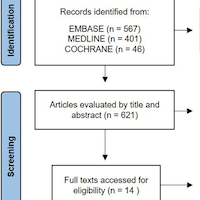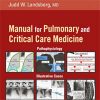Predictors of QT Interval Prolongation in Critically-ill Patients with SARS-CoV-2 Infection Treated with Hydroxychloroquine
medrxiv.org
Hydroxychloroquine (HCQ) has been described as a potential treatment for SARS-CoV-2 infection. However, there are safety concerns regarding its QT interval and pro-arrhythmic effects.
This trial aimed to determine the predictors of QT interval prolongation and pro-arrhythmic effects in patients hospitalized for SARS-CoV-2 infection and receiving HCQ.
We performed a retrospective observational study of 45 critically-ill patients hospitalized because of SARS-CoV-2 infection and treated with 800 mg of HCQ at day 1 and 400 mg on days 2-5.
Clinical aspects and outcomes, basal and final corrected QT (QTc) interval, and the incidence of arrhythmias and arrhythmogenic death were observed. Independent predictors of QTc prolongation were identified using multivariable logistic regression analysis. QT interval prolongation was considered substantial at final QTc [≥] 480 ms.
ResultsThe mean age was 60.9 {+/-} 16.67 years and 28 (62.2%) patients were men. Basal QTc was 442 {+/-} 28 ms, and the final QTc interval was 458 {+/-} 34 ms, for a mean QTc interval variation of 15 {+/-} 11 ms. There was no arrhythmogenic death.
The need for hemodialysis remained a statistically significant predictor of QT interval enlargement (odds ratio, 10.34; 95% confidence interval, 1.04 – 102.18; p = 0.045).
HCQ promotes mild to moderate QT interval prolongation. The risk of QT interval prolongation is higher among patients with acute renal failure requiring hemodialysis.




















